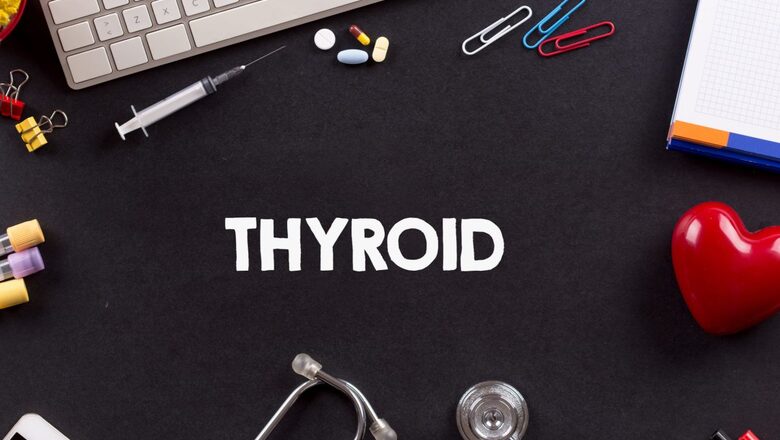
views
Thyroid disorders occur generally when the production of the hormone is either less or more than what the body requires. The thyroid gland is one of the most vital hormonal glands in the human body. It produces thyroxine or tetraiodothyronine (T4) and triiodothyronine (T3) which help in the growth and development of the body and helps in metabolism.
Thyroid disorders occur generally when the production of these hormones is either less or more than what the body requires. When the hormone production is more than the required needs it is known as Hyperthyroidism and when the production is less than the required needs it is known as Hypothyroidism. Hypothyroidism is much more commonly seen in people as compared to hyperthyroidism but both these disorders have serious health risks.
- Symptoms of Hyperthyroidism: Major symptoms of hyperthyroidism are unusual weight loss, an increase in appetite, hair loss, anxiety, nervousness, loss of sleep, an increase in heart rate, increased sweating, heat sensitivity and hand tremors.
- Symptoms of Hypothyroidism: Major symptoms of hypothyroidism are Increase in weight, fatigue, depression, trouble in tolerating cold temperatures, pain in joints, slowed heart rate, dry skin, constipation and irregular menstrual cycles.
Here are some of the preventive measures that one can take against thyroid disorders:
It is already well known that smoking is injurious to one’s health and in the case of thyroid disorders, smoking is very hazardous. Smoking releases toxic components that can harm the production of hormones in the gland and make it over-sensitive.
Processed food contains a variety of chemicals and thyroid glands can be sensitive to these chemicals and this may harm the production of hormones in the gland and affect the growth and development of the body. Changes in hormonal production are also a cause of major thyroid diseases.
Stress is one of the major threats to a human’s health and should be avoided in any case. Taking stress produces cortisol hormone which hampers the production in the thyroid glands.
Although soy is not unhealthy in any way, you should still avoid it if you have thyroid problems as it may alter the thyroid gland and affect the production of hormones.
A balanced diet is the best way to keep your body healthy. We should add more protein-rich food to our diet like chicken, eggs, milk and fish. Gluten, processed food, fast food and soya are the main things that should be avoided.
















Comments
0 comment